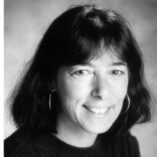We keep saying, “this is a weird time.” We keep saying, ‘this is different from anything we’ve ever experienced before.” We keep saying, “I’m not sure I know how to cope with this.” All those statements are true. And also not. Lessons from our past inform this new situation.
Don’t touch your face. A guy (okay, my guy) who used to work with sterile media under a hood told me that the experience of having to note carefully where he put his hands and to be careful what he touched came right back to him – 40 years later. He now finds it easier than most to be aware of his hands, to avoid touching his face and surfaces that might be contaminated.
You can make do with what you have (or what’s available in the store). A relative who was living on a very small income discovered how inexpensive squid was, so she ate it several times a week. She says it gave her confidence that she could cook with unfamiliar ingredients. And she learned to stretch what she had, making three meals from one chop, adding whatever vegetables were cheap, and pasta. Now she can use whatever she finds in her cupboard to make delicious meals so she can avoid going to the store often. The chard stems from the garden, a few carrots, some black eyed peas and bouillon cubes makes a perfectly palatable stew.
Isolation is hard but manageable. A dear friend who has suffered from depression writes, “I keep saying it as a joke but it’s actually very true that my depression has very well prepared me for this… my years of practice self-isolating due to depression are finally paying off!!!” He tells me that practicing what helped him when recovering from bouts of depression – meditation, regular check-ins with family and walks outside – are helping him to cope with his isolation now.
The universe is random. A friend of my son writes that during the polio epidemic, her cousin was in an iron lung and not even his parents to could visit him. Nobody knew if he would survive. Today he is ok but his younger, healthier brother died of pancreatic cancer a few years ago. She says this experience helps her understand that although we can assess risks, we can’t count on any medical guarantees. And then she adds what seems to me to be the most important wish we can all have: “My sincere hope is that if I am not there to take care of things, someone else with a good heart and a generous spirit will.”
